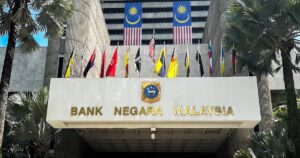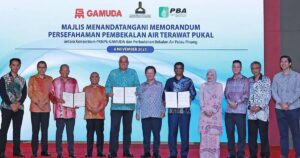
Next year marks Visit Malaysia Year 2026.
According to Tourism Malaysia, “The year 2026 holds a special place in the hearts of all Malaysians as we reflect on our journey, celebrating both the triumphs and the challenges of transforming a once-colonial land into a thriving, multicultural, and dynamic nation”.
The reference to “colonial land” may be less fitting, as it does not fully capture the historical experiences of partner states like Sabah and Sarawak. For instance, in the Borneo states, there remains a lingering sentiment that they continue to be subjected to a form of colonialism under a highly centralised federal system.
The slogan “Malaysia, Truly Asia” has been revived as a defining brand identity encapsulating the country’s rich cultural diversity and global appeal.
Yet, in light of recent developments in race relations, one is compelled to question whether Malaysia truly embodies the ideal of a cultural melting pot, where diversity is not only celebrated but also deeply appreciated for its significance.
Several headlining events come to mind.
The first is a Facebook post by a PAS member that undermined the promotion to three-star general of Johnny Lim, the first person of Chinese descent to rise to such a high rank in the Malaysian armed forces.
What should have been a pivotal moment of national pride and celebration was instead tainted by divisive remarks. A “pendatang” has now risen to one of the highest ranks in the army.
The second is the upside-down flag incident, which quickly escalated into racial taunts and threats, an unsettling reminder of how easily such issues can spiral out of control if left unchecked. One would have thought that the painful lessons of the May 13, 1969 tragedy had long been a deterrent.
People considering a visit to Malaysia in 2026 may question whether the country is safe.
And tourists these days are different. They Google to check on places to stay and eat, the weather and public safety.
News like an angry man leading a mob to teach an “apek” a lesson for hanging a Malaysian flag upside down is not just un-Malaysian but also runs contrary to the aspirations of Visit Malaysia Year 2026.
(In East Malaysia, we would treat such incidents humorously and invite the “apek” for a bowl of “ngau chap” or “kolok mee” and help hang the flag correctly.)
And pictures featuring such a mob being shared around the globe may even prompt foreign embassies to issue advisories, warning of potential unrest.
Tourists, who would normally be concerned about pickpockets or scammers, may now find themselves wary of being caught in the crossfire of Malaysia’s divisive politics.
Unfortunately, the Borneo states of Sabah and Sarawak have become collateral damage in this issue.
Visitors unfamiliar with Malaysia’s history will view this recent episode as a reflection of the nation’s racial disharmony.
Yet, Sabah and Sarawak have little patience for such selfish antics. Their priorities lie elsewhere, defending their Malaysia Agreement 1963 (MA63) rights, securing a fair share of revenue from oil and gas resources, and demanding greater development funds.
Still grappling with inadequate infrastructure and persistent poverty, they have no time for symbolic controversies such as one individual flying the Jalur Gemilang upside down. It may even affect foreign investor confidence coming to the state.
The death of Form 1 student Zara Qairina Mahathir may compound matters, especially in the age of social media. Its influence should never be underestimated.
Social media can amplify negative sentiments and spread fear-mongering rumours.
Zara’s case is a clear example: a personal tragedy that evolved into a national one. It also highlighted the perceived failures of the authorities.
Common sense needed
Sometimes Malaysians need to use common sense, which is clearly lacking these days.
Recently, the Yang di-Pertuan Agong Sultan Ibrahim called for the defence ministry to scrap plans to procure second-hand Black Hawk helicopters.
Pointing out the aircraft would have been over 30 years old, Sultan Ibrahim warned the ministry against putting the air force’s pilots into “flying coffins”.
And while the armed forces have since shelved the plan, it was clear that the authorities have not learned their lessons from the littoral combat ship (LCS) scandal.
The project has come under intense public scrutiny for years, plagued by delays since 2019 and ballooning costs, from the original RM6 billion to RM11.22 billion.
The views expressed are those of the writer and do not necessarily reflect those of FMT.






